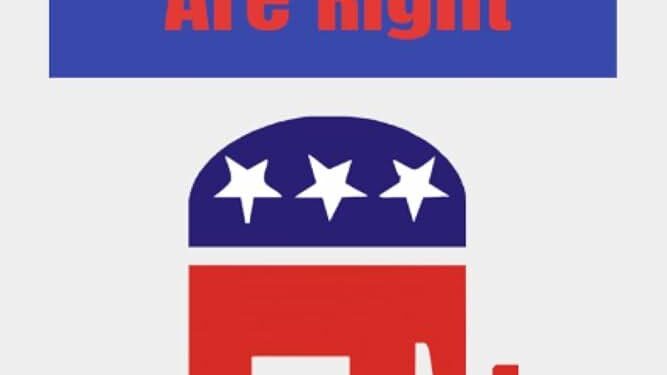In a move highlighting the deepening political divide over education in the United States, Republican lawmakers have announced plans to implement an “America First” assessment for teachers relocating from predominantly Democratic, or “blue,” states. The initiative, unveiled earlier this week, aims to vet incoming educators for alignment with conservative values and patriotic principles before they enter classrooms in Republican-led states. Critics argue the measure risks politicizing education and undermining teacher autonomy, while supporters claim it is necessary to safeguard students from what they perceive as liberal bias. This development marks a significant escalation in the culture wars surrounding education and raises questions about interstate mobility for educators and the future of classroom instruction across the nation.
Republicans Introduce America First Screening for Educators Migrating from Blue States
Amid growing concerns over the ideological leanings of educators relocating from traditionally liberal states, Republican lawmakers have proposed a new standard aimed at ensuring alignment with conservative values in classrooms nationwide. This “America First” screening initiative seeks to evaluate educators on their commitment to patriotic principles, economic freedom, and educational transparency before they are cleared to teach. Supporters argue the program is a necessary measure to protect children from what they describe as “partisan indoctrination.”
The screening process includes a series of assessments, designed to gauge candidates’ understanding of American history, civics, and constitutional principles, alongside evaluations of their teaching philosophies. Key elements under review include:
- Adherence to constitutional foundational knowledge
- Support for free-market economic perspectives
- Commitment to refraining from politically charged curriculum
| Screening Component | Assessment Focus | Passing Criteria |
|---|---|---|
| Patriotism & History | Understanding of U.S. founding documents | 80% or above on written exam |
| Civics & Governance | Knowledge of electoral processes and institutions | Demonstrated practical application skills |
| Teaching Philosophy | Commitment to unbiased, fact-based instruction | Positive review by committee panel |
Concerns Over Political Influence Shape New Teacher Vetting Policies
State education boards spearheading new vetting procedures emphasize safeguarding classroom environments from perceived ideological biases. Under these initiatives, incoming teachers from predominantly Democratic states may undergo evaluations focusing on their political beliefs, affiliations, and curricular approaches. Proponents argue this measure ensures educators embody values that align with local cultural and political standards, fostering a more “patriotic” learning atmosphere. Critics, however, warn that these methods could lead to discriminatory hiring practices and undermine educational diversity.
Key components of the proposed vetting protocols include:
- Background assessments of political activity and public statements
- Review of teaching materials for alignment with state-approved content
- Interviews targeting perspectives on American history and civics education
| Evaluation Criteria | Focus Areas | Potential Outcome |
|---|---|---|
| Political Affiliation | Social media activity, protests | Flag for deeper review |
| Curriculum Alignment | Textbooks and lesson plans | Approval or revision request |
| Interview Responses | Stance on patriotism and civics | Conditional hiring |
Experts Recommend Balanced Approaches to Ensure Educational Integrity and Diversity
Leading educators and policy analysts emphasize the importance of striking a delicate balance when assessing teaching professionals entering classrooms from different states. They warn against policies that could unintentionally stifle the diversity of perspectives critical to a robust educational experience. According to several experts, evaluation frameworks must incorporate both rigorous standards and cultural sensitivity to preserve academic freedom while ensuring quality instruction. Key to this approach is a transparent process that avoids partisan pitfalls, promoting a learning environment where students benefit from varied intellectual traditions.
Experts suggest practical measures to uphold educational integrity without compromising inclusiveness. These recommendations include:
- Objective competency assessments tied strictly to professional credentials and classroom performance.
- Regular professional development focused on pedagogical effectiveness and cultural competency.
- Collaborative review panels representing diverse geographic and political backgrounds.
| Policy Element | Purpose | Expected Outcome |
|---|---|---|
| Neutral Competency Tests | Evaluate knowledge and skills objectively | Maintain high teaching standards |
| Diversity Training | Enhance cultural awareness | Foster inclusive classrooms |
| Cross-State Collaboration | Involve educators from various regions | Limit partisan bias in screening |
To Wrap It Up
As the “America First” test proposal gains traction among Republican lawmakers, it underscores the broader cultural and political debates shaping education policy across the nation. Critics argue that such measures may deepen partisan divides and threaten educators’ freedom, while supporters contend they are necessary to safeguard American values in classrooms. As this development unfolds, stakeholders from both sides will closely monitor its impact on teacher mobility, school communities, and the broader political landscape. Time will tell whether the initiative advances or faces significant legal and public resistance.














